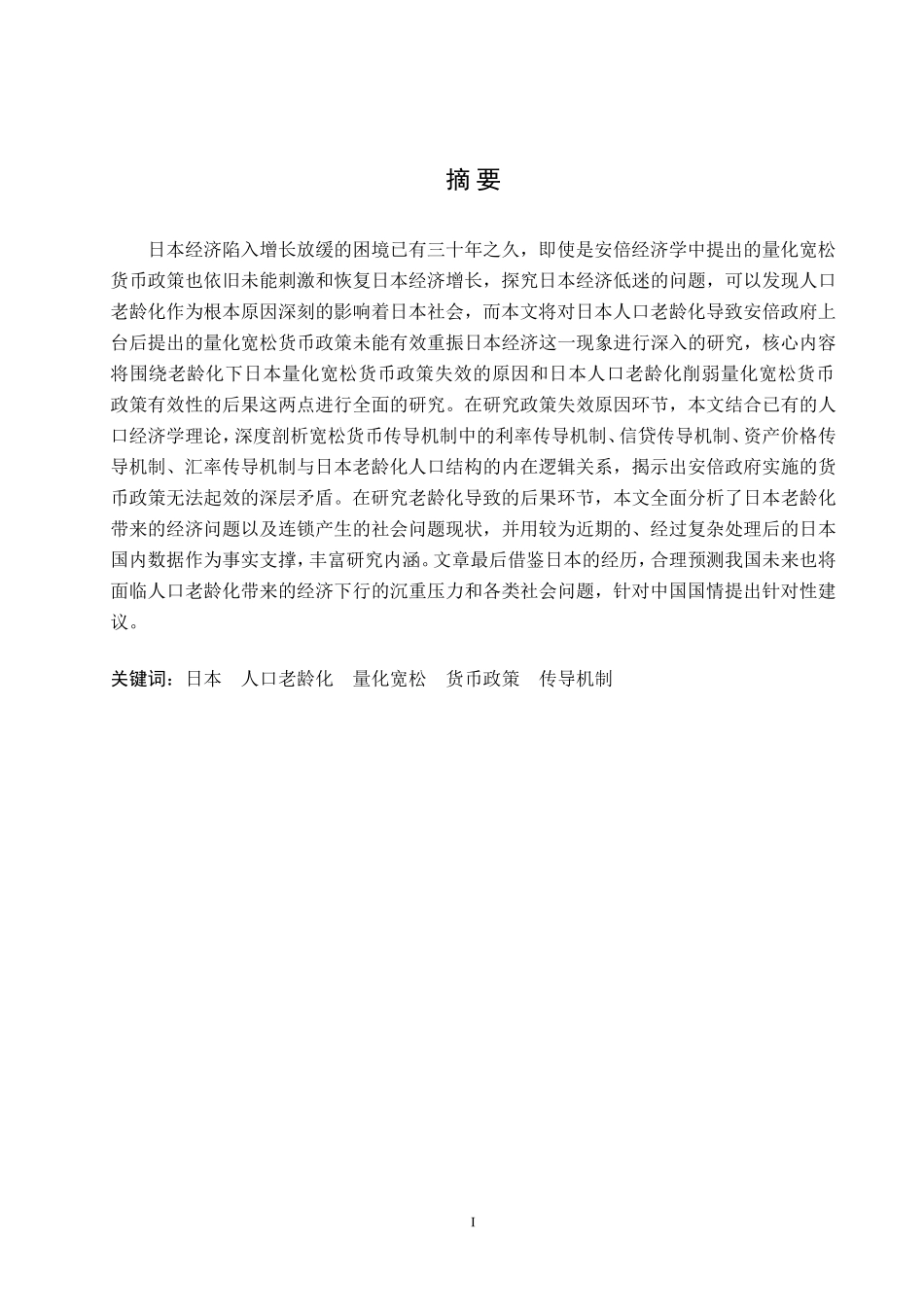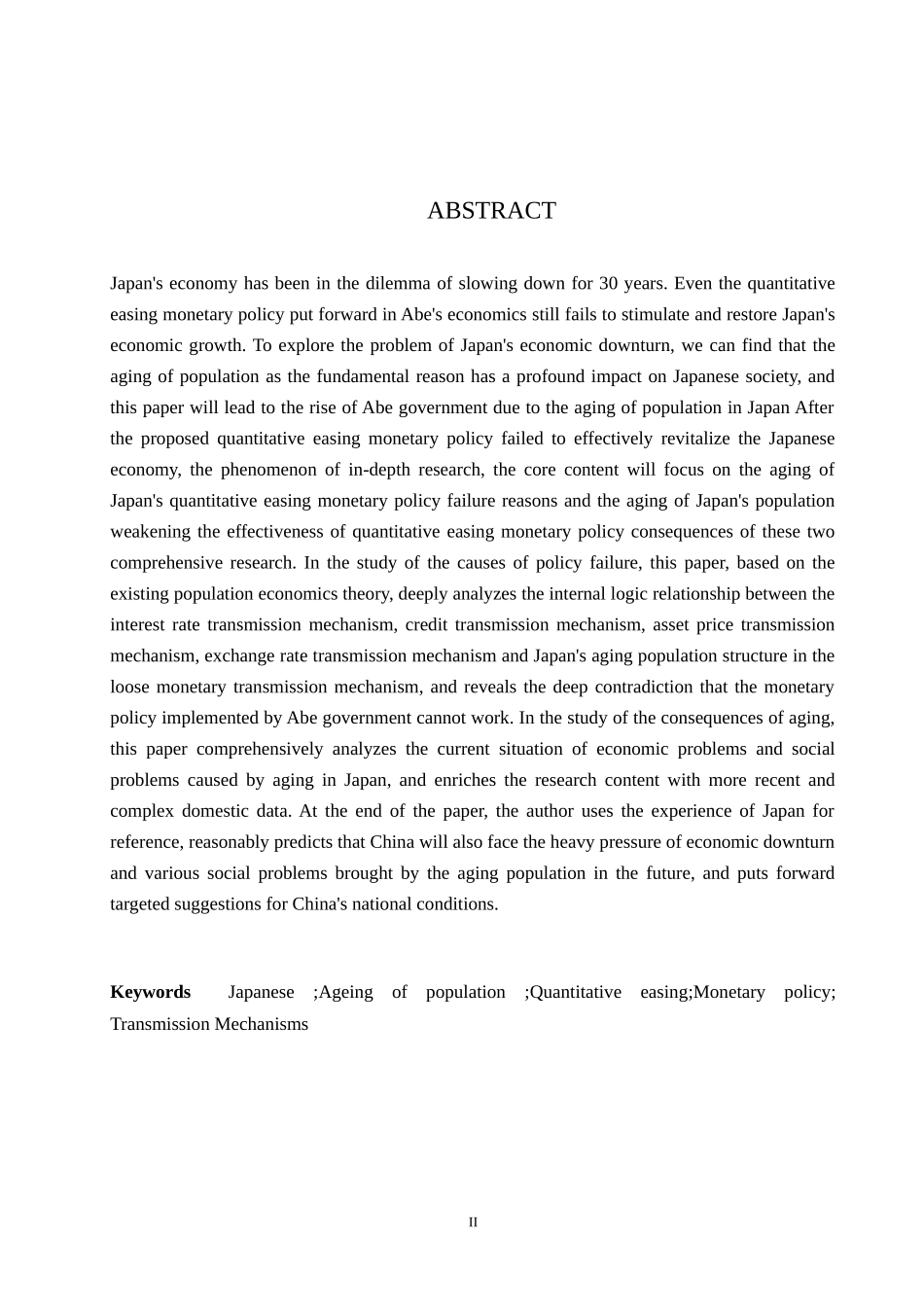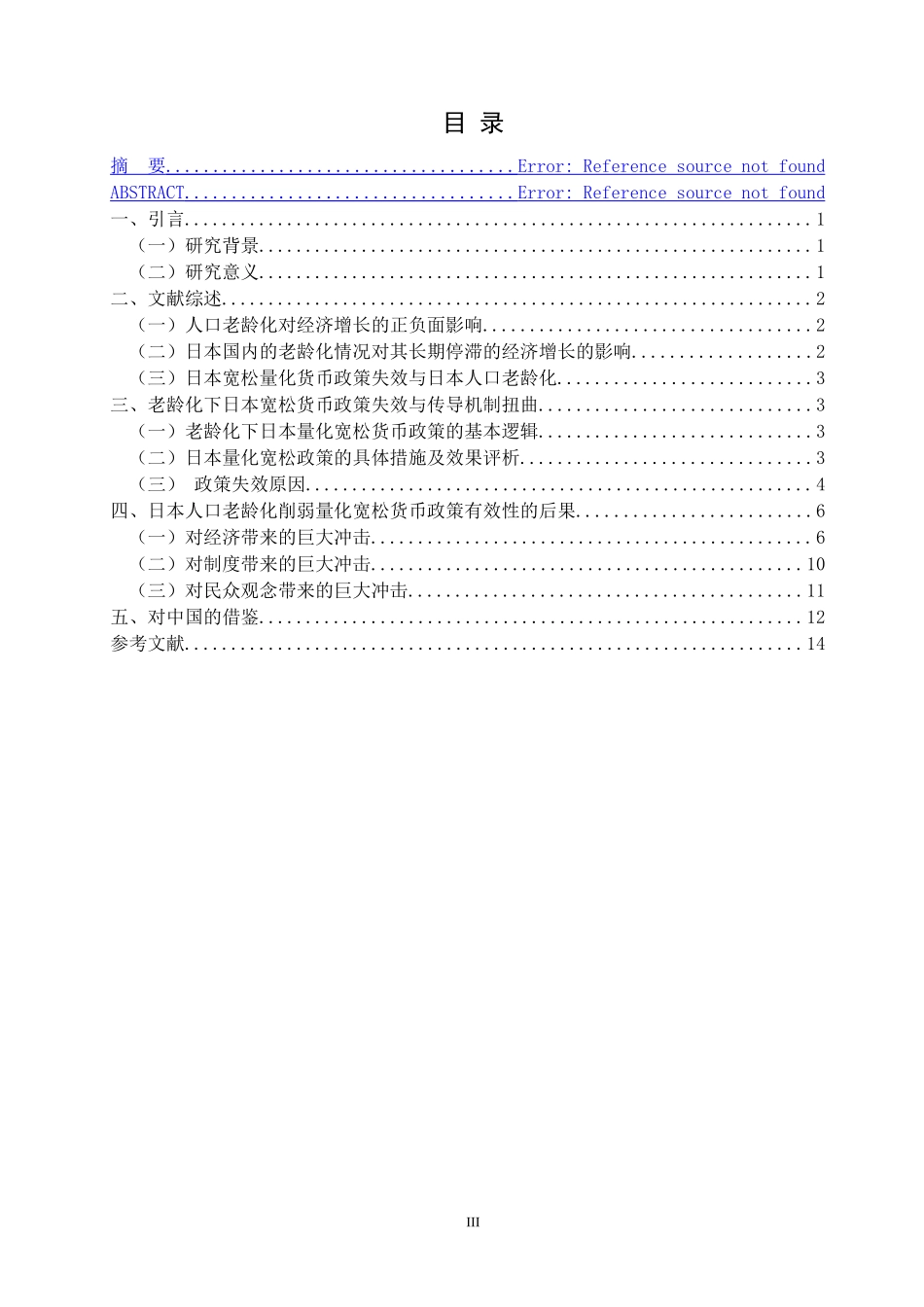I摘 要日本经济陷入增长放缓的困境已有三十年之久,即使是安倍经济学中提出的量化宽松货币政策也依旧未能刺激和恢复日本经济增长,探究日本经济低迷的问题,可以发现人口老龄化作为根本原因深刻的影响着日本社会,而本文将对日本人口老龄化导致安倍政府上台后提出的量化宽松货币政策未能有效重振日本经济这一现象进行深入的研究,核心内容将围绕老龄化下日本量化宽松货币政策失效的原因和日本人口老龄化削弱量化宽松货币政策有效性的后果这两点进行全面的研究。在研究政策失效原因环节,本文结合已有的人口经济学理论,深度剖析宽松货币传导机制中的利率传导机制、信贷传导机制、资产价格传导机制、汇率传导机制与日本老龄化人口结构的内在逻辑关系,揭示出安倍政府实施的货币政策无法起效的深层矛盾。在研究老龄化导致的后果环节,本文全面分析了日本老龄化带来的经济问题以及连锁产生的社会问题现状,并用较为近期的、经过复杂处理后的日本国内数据作为事实支撑,丰富研究内涵。文章最后借鉴日本的经历,合理预测我国未来也将面临人口老龄化带来的经济下行的沉重压力和各类社会问题,针对中国国情提出针对性建议。关键词:日本 人口老龄化 量化宽松 货币政策 传导机制IIABSTRACTJapan's economy has been in the dilemma of slowing down for 30 years. Even the quantitative easing monetary policy put forward in Abe's economics still fails to stimulate and restore Japan's economic growth. To explore the problem of Japan's economic downturn, we can find that the aging of population as the fundamental reason has a profound impact on Japanese society, and this paper will lead to the rise of Abe government due to the aging of population in Japan After the proposed quantitative easing monetary policy failed to effectively revitalize the Japanese economy, the phenomenon of in-depth research, the core content will focus on the aging of Japan's quantitative easing monetary policy failure reasons and the aging of Japan's population weakening the effectiveness of quantitative easing monetary policy consequences of these two comprehens...












